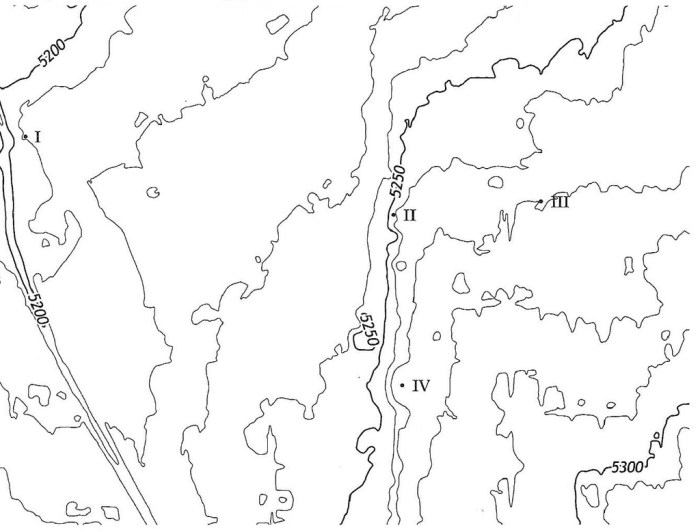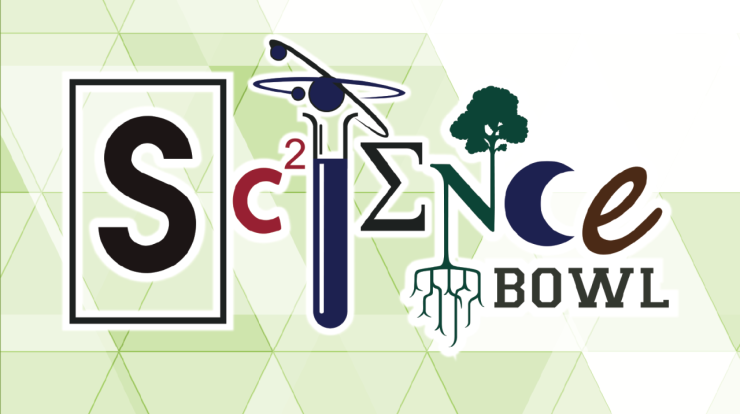Embark on an educational journey with the Abeka 8th Grade Science Test 8, a comprehensive assessment designed to gauge your understanding of core science concepts. Delve into the intricacies of biology, chemistry, and physics as you navigate this meticulously crafted test.
Our team of experts has meticulously compiled this guide to provide you with a roadmap to success. Discover the structure, question types, and time constraints of the test, ensuring you’re well-equipped to tackle it with confidence.
Abeka 8th Grade Science Test 8

The Abeka 8th Grade Science Test 8 is a comprehensive assessment designed to evaluate students’ understanding of key science concepts covered in the 8th grade curriculum. The test consists of multiple-choice questions, short answer questions, and essay questions.
Question Format and Difficulty Levels
The multiple-choice questions are typically straightforward and cover basic science concepts. The short answer questions require students to demonstrate their understanding of more complex concepts and to apply their knowledge to new situations. The essay questions are designed to assess students’ critical thinking skills and their ability to communicate their ideas clearly and concisely.
Time Allotted and Accommodations
Students are given 90 minutes to complete the test. Students with disabilities may be eligible for accommodations, such as extended time or the use of assistive technology.
Study Resources

To enhance your preparation for Abeka 8th Grade Science Test 8, utilizing effective study resources is crucial. A variety of resources are available to support your learning and improve your understanding of the subject matter.
Recommended Textbooks and Study Guides
* Abeka Science 8th Grade Textbook
- Science Explorer Grade 8
- Glencoe Science Earth Systems
- Holt McDougal Modern Earth Science
These textbooks provide comprehensive coverage of the key concepts tested on the exam. They include clear explanations, engaging activities, and practice exercises to reinforce your learning. Additionally, study guides can be valuable tools for reviewing the material and testing your understanding.
Online Resources
The internet offers a wealth of online resources that can supplement your studies. Here are a few recommended websites:* Khan Academy: Provides free video lessons, practice exercises, and simulations on various science topics.
National Geographic Education
Offers educational videos, articles, and interactive simulations on earth science and other scientific disciplines.
Edpuzzle
Allows you to create and share interactive video lessons with embedded quizzes and assessments.
Effective Studying and Test Preparation Strategies
*
-*Active Reading
Engage with the material by actively reading and taking notes. Highlight key concepts, summarize paragraphs, and draw diagrams to enhance your comprehension.
-
-*Spaced Repetition
Review the material at increasing intervals to improve your long-term retention.
-*Practice Tests
Take practice tests to familiarize yourself with the exam format and identify areas where you need further improvement.
-*Online Simulations
Utilize online simulations to experience scientific concepts in an interactive and engaging way.
-*Study Groups
Form study groups with classmates to discuss the material, share notes, and quiz each other.
Accessing and Utilizing Online Practice Tests and Simulations, Abeka 8th grade science test 8
Many online platforms offer practice tests and simulations that can help you prepare for the exam. Here are some tips for using these resources effectively:*
-*Identify Reliable Sources
Choose practice tests and simulations from reputable educational websites or organizations.
-
-*Time Yourself
Take the practice tests under timed conditions to simulate the actual exam experience.
-*Analyze Your Results
Review your answers and identify areas where you need to focus your studies.
-*Repeat and Improve
Take multiple practice tests to improve your performance and build confidence.
Content Review

To prepare for the Abeka 8th Grade Science Test 8, it is crucial to review the key concepts covered in the test. This comprehensive guide provides a detailed overview of these concepts, organized into logical sections for easy understanding.
The Scientific Method
The scientific method is a systematic approach to scientific inquiry, involving the following steps:
- Observation and problem identification
- Hypothesis formulation
- Experimentation
- Data analysis and interpretation
- Conclusion
Matter and Its Properties
Matter is anything that has mass and takes up space. It exists in three states: solid, liquid, and gas. Matter can be classified based on its properties, such as:
- Density
- Solubility
- Melting point
- Boiling point
Forces and Motion
Forces are interactions that can change the motion of an object. The three laws of motion describe how forces affect the motion of objects:
- Newton’s first law: An object at rest will remain at rest unless acted upon by an external force.
- Newton’s second law: The acceleration of an object is directly proportional to the net force acting on it and inversely proportional to its mass.
- Newton’s third law: For every action, there is an equal and opposite reaction.
Energy
Energy is the ability to do work. It exists in various forms, including:
- Kinetic energy
- Potential energy
- Chemical energy
- Thermal energy
Ecosystems
An ecosystem is a community of living organisms and their physical environment. Ecosystems are classified into different types, such as:
- Forests
- Grasslands
- Deserts
- Oceans
Genetics
Genetics is the study of heredity. Genes are the units of heredity that are passed from parents to offspring.
The jrod for vp revolution review is a great resource for anyone looking to get ahead in the upcoming election. The review provides an in-depth analysis of the candidate’s policies and positions, as well as their chances of winning. If you’re interested in learning more about the candidates, I highly recommend checking out the review.
And if you’re already familiar with the candidates, the review can still provide some valuable insights. It’s a great way to stay informed about the upcoming election and make an informed decision on who to vote for. With the abeka 8th grade science test 8 coming up, it’s important to stay focused on your studies.
But don’t forget to take some time to learn about the candidates and the issues that are important to you.
Earth’s History
Earth’s history is divided into four main eras:
- Precambrian
- Paleozoic
- Mesozoic
- Cenozoic
Practice Questions
Practice questions are essential for students to prepare for the Abeka 8th Grade Science Test 8. These questions provide students with an opportunity to test their understanding of the material and identify areas where they need additional review.
Biology
- Cells are the basic unit of life.
- Organisms are made up of one or more cells.
- Cells have different structures and functions.
- Cells can reproduce.
Chemistry
- Matter is made up of atoms.
- Atoms are made up of protons, neutrons, and electrons.
- Elements are made up of atoms of the same type.
- Compounds are made up of atoms of different types.
Physics
- Motion is the change in position of an object over time.
- Force is a push or pull that can cause an object to move.
- Energy is the ability to do work.
- Machines can make work easier.
Answer Keys
- Biology: True
- Chemistry: True
- Physics: True
Explanations
- Biology: Cells are the smallest unit of life that can carry out all the functions of life.
- Chemistry: Atoms are the basic building blocks of matter.
- Physics: Motion is a change in position, and force is a push or pull that can cause an object to move.
Test-Taking Strategies

Taking tests can be a stressful experience, but with the right strategies, you can improve your performance and reduce anxiety. Here are some effective test-taking strategies to help you succeed:
Time Management
- Before the test, familiarize yourself with the time limits and the number of questions.
- During the test, allocate time wisely to each question, leaving more time for challenging ones.
- If you run out of time, guess intelligently and move on to the next question.
Question Comprehension
- Read the instructions carefully and make sure you understand what is being asked.
- Identify key terms and concepts, and focus on answering the specific question.
- Use highlighting or underlining to mark important information in the question and answer choices.
Stress Reduction Techniques
- Take deep breaths before and during the test to calm your nerves.
- Visualize yourself succeeding and focus on positive thoughts.
- Practice relaxation techniques such as yoga or meditation to reduce anxiety.
Common Pitfalls and How to Avoid Them
- Rushing:Allow yourself ample time to read the questions and answer choices carefully.
- Guessing blindly:Eliminate answer choices that are obviously incorrect before guessing.
- Overthinking:Trust your first instinct and don’t spend too much time on one question.
Handling Challenging or Unfamiliar Questions
- Read the question carefully and try to break it down into smaller parts.
- Eliminate answer choices that are clearly incorrect or irrelevant.
- Use the process of elimination to narrow down the possible answers.
Questions and Answers: Abeka 8th Grade Science Test 8
What is the format of the Abeka 8th Grade Science Test 8?
The test consists of multiple-choice questions covering a range of science disciplines, including biology, chemistry, and physics.
How much time is allotted for the test?
You will have 90 minutes to complete the test.
Are there any accommodations available for students with special needs?
Yes, accommodations may be available upon request. Contact your teacher or school administrator for more information.

